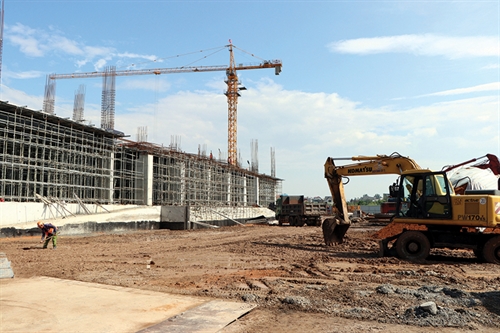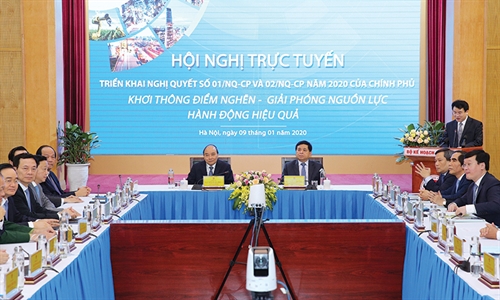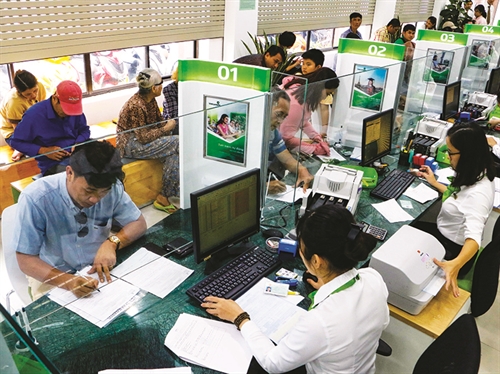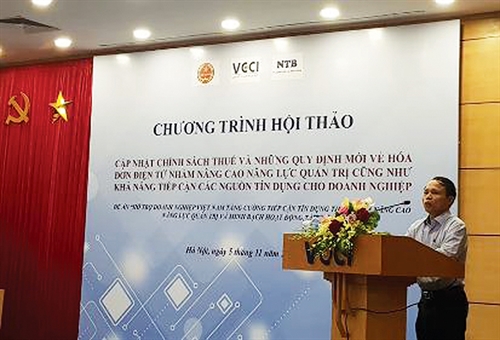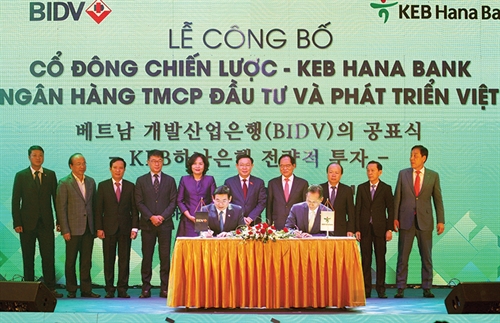Industrial zones have become a popular investment destination for foreign businesses. It is common now in practice to finance projects carried out in industrial zones and/or to take security over real estate located in those industrial zones. However, since the legal framework on lease of land in industrial zones remains complicated and has its limitations, such financing may turn risky for credit institutions in certain circumstances and at some stages. This article tries to present some legal aspects of extension of credit secured by real estate in industrial zones and suggest how to manage legal risks for credit institutions.
Bui Duc Giang
Attorney at law and PhD in law[1]
Main points:
• A company may only lease land from the State in order to construct and commercially exploit an industrial zone;
• If leasing land from a project owner with payment of annual land rentals, a company operating in an industrial zone will have limited rights compared to a lease with one-off payment of rentals for the entire lease term;
• Enforcement of charges over real estate in an industrial zone is not a straightforward process, and cooperation of the project owner appears to be a key factor for a smooth enforcement.
Ways of obtaining land for project implementation
Article 90.3 of Land Law 13/2003/QH11 dated November 26, 2003, as amended in 2009 (the 2003 Land Law) provides: “The State shall allocate land with collection of land use fees or lease land with payment of annual land rentals to economic organizations and overseas Vietnamese; lease land with one-off payment of rentals for the entire lease term or with payment of annual rentals to overseas Vietnamese and foreign entities and individuals to invest in construction and commercial operation of infrastructure in industrial zones.”.
Under Article 149.2 of Land Law 45/2013/QH13 dated November 29, 2013 (the 2013 Land Law), “the State shall lease land to economic organizations, overseas Vietnamese and foreign-invested enterprises to invest in construction and commercial operation of infrastructure in industrial zones [...]”.
As such, under the 2003 Land Law, a company may be allocated land by or lease land from the State in order to construct and exploit an industrial zone, while the 2013 Land Law allows only lease of land for that purpose.
Lease of land in industrial zones
Article 149.2 of the 2013 Land Law stipulates: “with respect to that area of land which is leased with payment of annual rentals, the person to whom the State leases land may sub-lease the land in the form of payment of annual rentals; and with respect to that area of land which is leased with one-off payment of rentals for the entire lease term, the person to whom the State leases land may sub-lease the land either in the form of one-off payment of rentals for the entire lease term or in the form of payment of annual rentals.”
However, in case a project owner is allocated land or leased land by the State with one-off payment of land rentals but is entitled to an exemption of land use fees or land rentals, it shall have the rights and obligations stipulated by the land law as applicable to the case in which the State leases land with payment of annual rentals (Article 174.4(c) of the 2013 Land Law), i.e., the project owner may only lease out or sub-lease out land in the form of collection of annual land rentals. On the other hand, if such project owner is entitled only to a reduction of land use fees or land rentals, it shall have the rights and obligations stipulated by the land law as applicable to the case of non-exemption or no reduction (Article 174.4(b) of the 2013 Land Law). Basically, this means the project owner may lease or sub-lease land in the form of annual or one-off payment of land rentals.
The thing is that if leasing land from the project owner with payment of annual land rentals, a company operating in an industrial zone will have limited rights compared to a lease with one-off payment of rentals for the entire lease term. Indeed, under Article 149.3 of the 2013 Land Law, in this case such lessee will not be allowed to assign, make capital contribution by using, or create security over, the use rights over the leased land. It may only exercise those rights over its assets attached to the land. In practice, this is a huge obstacle when the company is applying for funding from credit institutions.
To circumvent this new restriction of the 2013 Land Law, in addition to the annual land rentals, almost all project owners have been trying to collect also infrastructure use fees which however account for the main part of the aggregate amount to be paid by the lessee while the annual land rentals remain a tiny sum.
This solution appears to be lawful as Article 48 of Decree 118/2015/ND-CP dated November 12, 2015, implementing the Law on Investment, and Article 31.2 of Decree 82/2018/ND-CP dated May 22, 2018, on management of industrial zones and economic zones, allow project owners to collect both land rentals and infrastructure use fees provided that they register price frames and types of infrastructure use fees with local industrial zone management authorities. At this respect, it should be noted that project owners are not required to obtain any approval of such price frames and infrastructure use fees from such local industrial zone management authorities.
Under Article 210.2 of the 2013 Land Law, if a project owner that had leased land from the State with payment of annual land rentals sub-leased such land with infrastructure in the form of one-off payment of land rentals for the entire lease term before July 1, 2014, the sub-lessee will have the same rights and obligations as applicable to the case of land lease by the State with one-off payment of land rentals for the entire lease term after the project owner has paid in full land rentals into the state budget. This means that the sub-lessee may only assign, make capital contribution by using, or create security over, the use rights over the land once the project owner has converted the lease with payment of annual land rentals into a lease with one-off payment of land rentals for the entire lease term. In practice, almost all project owners have refused to proceed that way for various commercial reasons. Furthermore, neither the 2013 Land Law nor its implementing texts specify whether such conversion will relate to the entire land area leased from the State or separate land parcels located inside such land area. This is why there is no uniform construction of such provision in all provinces and cities of Vietnam, which has caused difficulties for the parties concerned.
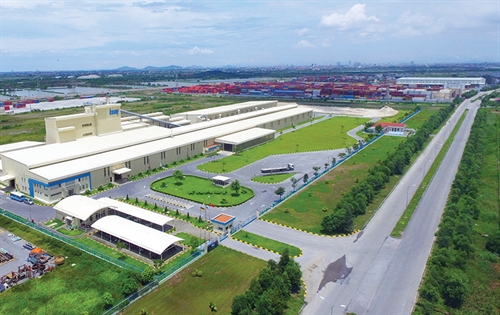 |
| Dinh Vu industrial park, Hai Phong city__Photo: VNA |
Charges over assets attached to land
When providing credit by lending money to, or issuing bank guarantees[2] at the request of, a company operating in an industrial zone which has been leasing land from the project owner with payment of annual land rentals, a credit institution may take security over assets attached to land being a future or existing construction work.
Article 3.2(a) of Ministry of Justice Circular 07/2019/TT-BTP dated November 25, 2019, guiding certain provisions on registration of charges over land use rights and assets attached to land (Circular 07), provides that future assets attached to land mean “future residential houses, future construction works which are being under the process of investment in construction but not accepted yet for use [...], including residential houses and construction works in a project of investment in construction of residential housing, separate residential houses provided in the Law on Residential Housing; other construction works provided in the legislation on investment in and business in real estate and other laws and regulations […]”.
This definition is similar to that of Article 3.4 of Law on Real Estate Business 66/2014/QH13 dated November 25, 2014, under which “future residential houses, future construction works shall be those under the process of construction and not accepted yet for use”.
It can be inferred from the above article of Circular 07 that:
• In order to create a charge over a factory or facility owned by a company leasing land in an industrial zone in the form of a future asset attached to land, the pre-condition is that such building must be in the process of being constructed and must have not been accepted for use yet.
• A factory or facility of a company leasing land in an industrial zone whose construction has been completed but whose ownership has not been registered will not be considered as a future asset attached to land but an existing asset attached to land[3] and it is possible to take security over that asset attached to land and proceed to the registration of such security in accordance with Article 15.1 of Circular 07 and Article 41.1 of Decree 102/2017/ND-CP dated September 1, 2017, on registration of security interests. However, those articles require that the registration file contains inter alia the certificate of land use rights and ownership over residential houses and other assets attached to land or an equivalent title (the Certificate). This is not always feasible as in practice it may happen that at that time the company has not been issued with a Certificate recording its land use rights over the leased land area on which the factory or facility has been erected.
Under Article 15.1 of Circular 07, registration of charges over assets attached to land which are existing assets but the ownership over which has not been registered yet in the Certificate will be as follows:
• The land registration office will first proceed to the certification of ownership over the assets attached to land on the Certificate (in case the owner of the asset attached to land is also the land user that has been issued a Certificate recording the land use rights) or request the competent natural resources and environment authority to issue the Certificate (in case the owner of the asset attached to land is not the land user);
• It will then record the registration of the charge, including the time of registration, on the Certificate and the cadastral book.
As such, registration of the charge in this case will not reduce much time compared to the case where the chargor first applies for the issuance of the Certificate or certification of ownership over the assets attached to land on the Certificate and then charges its asset attached to land in favor of the credit institution while this solution seems to be less risky for the latter.
In addition, the credit institution may not rest assured that enforcement of its security is going to be a straightforward process since specific rules on enforcement of security over assets attached to land in industrial zones remains incomplete.
Indeed, the 2013 Land Law sets out a general principle in its Article 175.1(c) under which in case a company that leases land from the State with payment of annual land rentals sells its asset attached to land, “the purchaser of the asset shall be entitled to lease land from the State in line with the pre-defined purpose(s)”.
Article 81.3 of Decree 43/2014/ND-CP dated May 15, 2014, detailing a number of articles of the 2013 Land Law, as amended in 2017 (Decree 43) further provides: “in case the land user that leases land with payment of annual land rentals has created a charge over [...] an asset attached to land fails to perform its obligation towards the chargee [...], the State shall take back the chargor’s land in order to lease it out to the purchaser of the asset or the chargee appropriating the asset in lieu of payment of the secured obligation, unless otherwise agreed.”.
Sale of the charged asset being an asset attached to land on enforcement is in essence a way in which the company leasing land in an industrial zone is selling its asset attached to land.
Nevertheless, one of the main characteristics of a lease of land in an industrial zone is that the company is leasing land from the project owner, but not directly from the State. As a result, the above provisions of the 2013 Land Law and Decree 43 would not automatically apply.
One may argue that as the current law recognizes the principle of applying analogous rules of law in case of lack of rules of law with respect to a specific matter, it would be possible to revert to the provisions of the 2013 Land Law and Decree 43 in this case[4]. Accordingly, the purchaser of the charged asset or the credit institution appropriating the charged asset in lieu of payment of the secured loan will be entitled to remain on lease with the project owner and the parties may keep the intended purpose of the lease as defined in the initial lease between the chargor and the project owner or agree on a new one. In other words, those persons will become the new lessees in the lease contract signed with the project owner[5].
However, this is an important question and the land legislation must provide for specific rules and should not give way to application by analogy in order to avoid potential disputes.
In practice, cooperation of the project owner is an important condition for a smooth enforcement. For that reason, the credit institution should obtain the project owner’s undertaking to that effect at the very stage of entering into the charge contract.
Risks inherent to project owners
Like all other companies, the project owner may be subject to dissolution or bankruptcy and this is likely to affect the leases signed with lessees and thus repayment of the credit granted or security created.
Article 65.1(a) of the 2013 Land Law indicates that the State will take back land in case the user of a land leased from the State with payment of annual land rentals is dissolved or goes bankrupt. As such, if the project owner is dissolved or goes bankrupt, in principle the land that it leased from the State with payment of annual land rentals will be taken back by the State. Reading this article together with Article 177 of the 2013 Land Law, it can be inferred that in case the land is leased from the State with one-off payment of land rentals for the entire lease term, the State will not take back the land in case the project owner is dissolved or goes bankrupt: the land use right belongs to the project owner and will be realized in accordance with the legislation on dissolution or bankruptcy. In this circumstance, assignment of the project owner’s land use rights will be part of the assignment of the project of investment in construction and exploitation of industrial zone infrastructures. In other words, the assignee of such project will take over the remaining obligations of the initial project owner towards the sublessees of land in the industrial zone.
At this regard, attention should be paid to the characteristics of leases of land located in industrial zones, in particular to the fact that lessees are issued with Certificates for the leased land (Article 99.1(e) of the 2013 Land Law), regardless of whether the land is leased from the project owner with payment of annual land rentals or one-off payment of land rentals.
The above analysis shows that there remain certain loopholes and limitations in the legal framework applicable to leases of land and security over real estate in industrial zones and such legal framework still contains complex rules. In practice, this creates various troubles to credit institutions notably in the process of creation and enforcement of their security. Hopefully, a clearer framework will be enacted in the coming time to help boost credit.-
